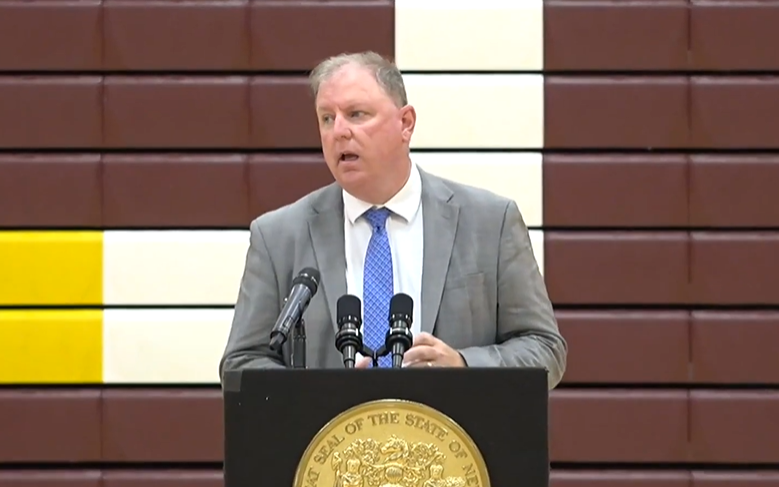NJ Holds Uber to Account with $100 Million Levy

In a huge win for workers and legit New Jersey employers, Uber has been ordered to pay $100 million into New Jersey’s Department of Labor’s Unemployment Trust Fund. After a four year audit, New Jersey Department of Labor investigators documented that the multi-billion dollar multinational had shirked its legal obligation to pay into safety net programs that cover unemployment, disability as well as family leave insurance.
The landmark settlement is just another example of states and local governments successfully stepping up to support workers when federal enforcement of labor law lags or fails to address an emergent issue so common in the so-called gig economy.
Last month, Chipotle paid $20 million to settle a case involving violations of New York City’s Fair Workweek Law, passed in 2017 that mandated fast food companies give workers a work schedule two weeks in advance. It also required managers provide 11 hours of downtime between shifts as well as pay a $100 premium if workers consented to work more frequently. 13,000 workers will benefit from the settlement.
‘BE YOUR OWN BOSS’
For years, Uber insisted its workforce was composed of so-called “independent contractors” relieving it of any obligation to make these contributions required of New Jersey employers. The audit was conducted between 2014 and 2018 and covered close to 300,000 drivers. It’s the largest such payment in history and covers $78 million in past-due contributions as well as $22 million in interest and penalties.
“These companies often repeat the false premise that being an employee stifles flexibility, which is just

not true,” said Labor Commissioner Robert Asaro-Angelo in a statement. “Let’s be clear: there is no reason temporary, or on-demand workers who work flexible hours, or even minutes at a time can’t be treated like other employees in New Jersey or any other state.”
“We will not tolerate companies that misclassify their workers, thereby denying employees vital benefits and dodging their obligation to contribute to programs that benefit the workforce,” said Acting Attorney General Matthew Platkin. “By misclassifying workers, companies both harm their employees and sidestep their obligations under the law. New Jersey will continue to enforce our employee misclassification laws aggressively to prevent such conduct. As the economy changes, we will vigorously defend workers’ rights.”
“The number is humongous and the impact will be felt far beyond New Jersey but in the end it was just a regular audit we do everyday,” said Asaro-Angelo during a wide ranging interview with InsiderNJ. “Sadly, there are too many employers out there putting the burden on the good guys, the folks who are keeping their businesses together while trying to do right and support their employees. We can’t have a multinational out there essentially passing the buck to New Jersey small businesses.”
Assaro-Angelo said that in addition to “undercutting the companies that obey labor laws” the bad actors like Uber can undermine the actuarial stability of the trust fund when the state has to pay out benefits for employees whose employer never paid what was required into the trust fund.
New Jersey’s Commissioner of Labor served for several years in the Obama administration as Eastern Regional Representative for the U.S. Department of Labor overseeing the agency’s regional activities. Before that he worked with the Laborers International Union, the American Federation of State, County and Municipal Employees as well as with the Service Employees International Union Local 1115.
The federal government requires the states to audit one percent of businesses each year for compliance with unemployment insurance contribution requirements. An audit can also be triggered if a complaint is filed, or if workers file for unemployment or disability and there is no record their employer made the required contributions.
In 2018, Governor Murphy signed an executive order establishing a Task Force on Employee Misclassification and subsequently signed legislation that expanded NJDOL enforcement powers to sanction employers who pay misclassified workers an additional 5 percent of their gross wages from the previous 12 months.
GLOBAL LEVERAGE
Around the world Uber has grown by successfully lobbying officials that its business model is something embraced by drivers for its flexibility. In several counties Uber ignored local regulations as their entry destabilized the existing markets as well as sparked labor unrest and violence.
According to a blockbuster investigative story back in July in the Guardian, Uber benefited from engaging top former Obama staffers David Plouffe and Jim Messina in a successful campaign to overcome opposition.
The Guardian expose was based on a leak of more than 120,000 internal Uber documents that according to the newspaper “lays bare the ethically questionable practices that field the company’s transformation into one of Silicon Valley’s most famous exports.” The documents cover a five year span when the company was operated by co-founder Travis Kalanick, who was forced out in 2017 under a cloud.
“The leaked trove of confidential files has revealed the inside story of how the tech giant Uber flouted laws, duped police, exploited violence against drivers and secretly lobbied governments during its aggressive global expansion,” reported the Guardian.
According to the newspaper when then “Vice President Biden, a supporter of Uber at the time, was late to a meeting with the company at the World Economic Forum at Davos, Kalanick texted a colleague: ‘I’ve had my people let him know that every minute late he is, is one minute he will have with me.’”
“From Moscow to Johannesburg, bankrolled with unprecedented venture capital funding, Uber heavily subsidized journeys, seducing drivers and passengers on to the app with incentives and pricing models that would not be sustainable,” reported the Guardian. “Uber undercut established taxi and cab market and put pressure on governments to rewrite laws to help pave the way for an app-based, gig-economy model of work that has since proliferated across the world.”
When in France, Uber’s entry sparked strikes and riots, the internal documents reveal Uber counseled their drivers to stage counter protests.“The decision to send Uber drivers into potentially volatile protests, despite the risks, was consistent with what one senior former executive told the Guardian was a strategy of ‘weaponizing” drivers, and exploiting violence against them to ‘keep the controversy during.’”
In responding to the expose, Uber conceded “mistakes and missteps” but added it had been subject to a corporate makeover since its current CEO Dara Khosrowshahi took over.
In a statement sent to InsiderNJ, State Sen. Joe Cryan (D-Union) expressed pride that New Jersey had managed to hold Uber accountable.
“Abuse of workers continues in the state at all levels, and I commend the Department of Labor and the Attorney General for pursuing the fraudulent practices of UBER,” wrote Cryan. “This is what our government is supposed to do, protect workers to the fullest extent of the law against big corporate interests. The State of New Jersey did that, stayed with it and changed the workplace for these employees and the past practices. I’m appreciative of the great work here, and hope UBER and other companies now understand that in New Jersey, employees matter.”
2022’s HARVEST OF SHAME?
Earlier this month, Cryan’s colleagues in the state legislature approved his legislation that extends basic labor protections to the state’s 130,000 temp workers that staff warehouses throughout New Jersey. The plight of these workers, who are largely immigrants, was first brought to light by a 2016 series published by NJ.com and The Star-Ledger in 2016 entitled “Invisible Workforce: Death, Discrimination and Despair in N.J’s Temp Industry.”
“It really brought to light to me is that people were being simply abused in this industry and the stories that were brought up from the loss of life to folks not being paid and then all the things that came in between,” Cryan told WBAI last month. “The work these people do is essential work as anybody whose had a package delivered to their door knows how essential they can be.”
Over the summer, [ownship/amp/] three deaths in New Jersey based Amazon warehouses in Carteret, Robbinsville and Monroe were reported. OSHA and state investigations are ongoing.
“The bill requires an executive decision by September 22, and we are optimistic the Governor will stand by working people with his action,” Cryan replied when asked about the status of the landmark legislation.









Leave a Reply